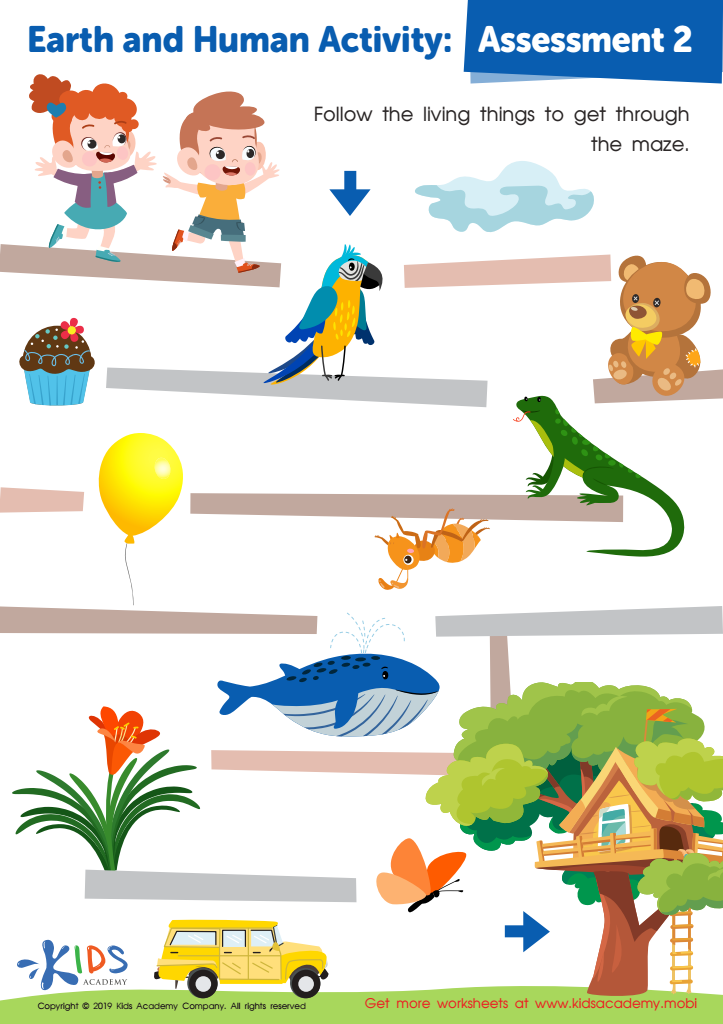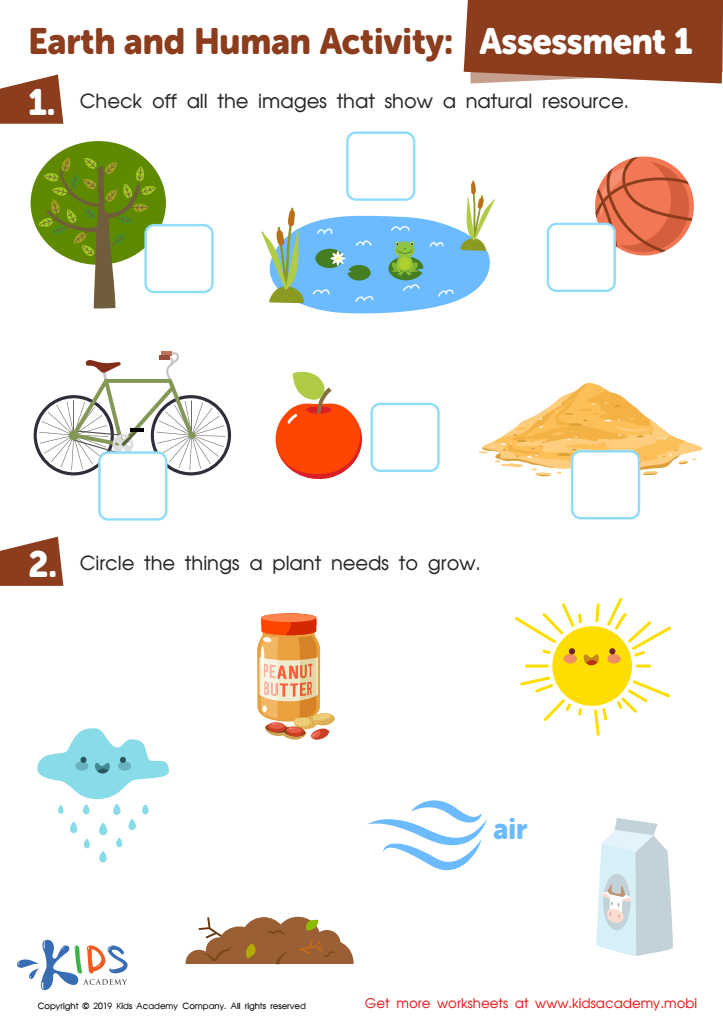Fun and Educational Plants and Animals Kindergarten Worksheets for Knowledge Check | Kids Academy
2 filtered results
-
From - To


Earth and Human Activity: Assessment 2 Worksheet


Earth and Human Activity: Assessment 1 Worksheet
Plants and Animals worksheets activities for Kindergarten offer an engaging and interactive way for young learners to explore the natural world. At this foundational stage, children are naturally curious and eager to learn about the environment around them. By integrating Plants and Animals worksheets activities into the Kindergarten curriculum, educators can harness this curiosity, fostering a love for learning and an appreciation for nature from an early age.
These worksheets are designed specifically with young learners in mind, offering a blend of colorful illustrations and hands-on activities that are both educational and entertaining. Through these activities, children can learn basic concepts such as the differences between plants and animals, understanding various habitats, and the importance of both in our ecosystem. This sets a crucial foundation for scientific literacy and encourages children to observe, inquire, and learn about the world in a structured yet playful environment.
Moreover, Plants and Animals worksheets activities for Kindergarten help in the development of critical thinking and problem-solving skills. As children engage with questions and puzzles, they learn to make connections, identify patterns, and solve problems, which are essential skills not only in science but in everyday life. Additionally, these activities are designed to improve fine motor skills through tasks like coloring, cutting, and tracing, which are vital for young children's development.
These worksheets also present an excellent opportunity for parents and educators to actively participate in the child’s learning process. They serve as a tool to spark interesting conversations and outdoor exploration, further enriching the child’s understanding and appreciation of nature.
In conclusion, Plants and Animals worksheets activities for Kindergarten are not just about learning facts; they are about inspiring wonder, fostering a connection with the natural world, and developing essential cognitive and physical skills. They offer a holistic approach to education at a crucial stage of a child’s development, making them an invaluable resource for both teachers and parents.

 Assign to the classroom
Assign to the classroom

.jpg)
.jpg)









